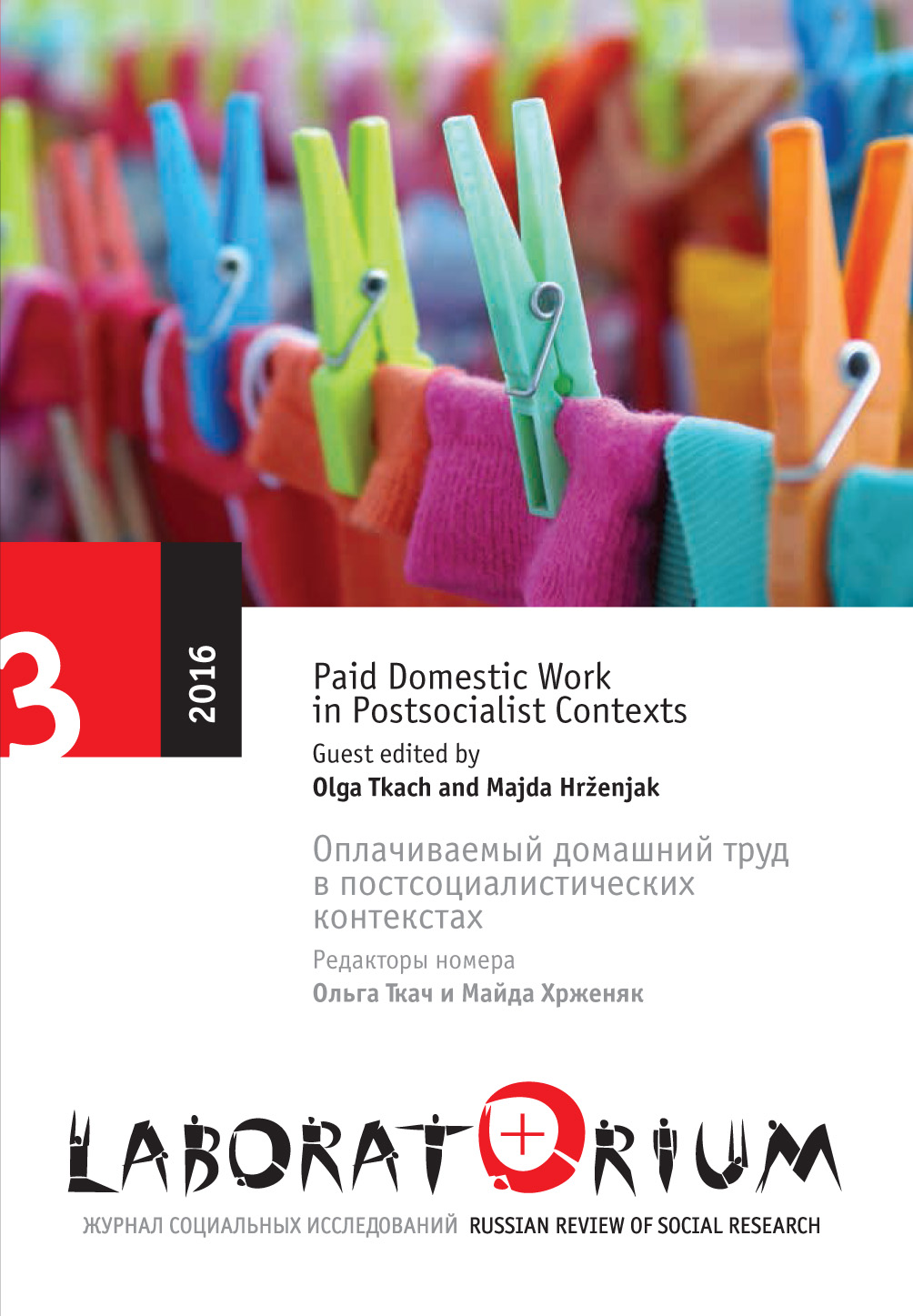Культурные модели классового неравенства в сфере наемного домашнего труда в России
Cultural Patterns of Class Inequality in the Realm of Paid Domestic Work in Russia
Author(s): Elena Zdravomyslova, Olga TkachSubject(s): Social Sciences
Published by: Центр независимых социологических исследований (ЦНСИ)
Keywords: Class Formation; Cultures of Inequality; Paid Domestic Labor; Employer-Employee Relationships; Russia
Summary/Abstract: This article, based on interviews and mass media data, analyzes the formation of class inequality in the course of employer-employee relationships between domestic workers and their employers in Russian households. The concept of the dialectics of control enables us to examine how two variants of the culture of inequality are formed in the private sphere. The first model of “conspicuous inequality” appears and is maintained in the course of interactions between modern “masters” and their “servants.” In such interactions the status of the domestic worker is constructed as subordinate to the employer.This status is formed through mechanisms of distancing, control, verbal signification, and exploitation. The second model of “egalitarian inequality” is maintained bythe new middle class of professionals and managers and their domestic helpers. This model presumes dialogue and feedback in employer-employee relationships, as well asa reduction of social distance and smoothing of the hierarchy between them. Both partiesin the contract display a mutual understanding based on personalized trust. Thestudy takes into account gendered structural characteristics of domestic work and family division of labor, as well as the peculiarities of the market of domestic workers in Russia connected to intra- and intercountry migration flows in the post-Soviet space. In Russian, extended summary in English.
Journal: Laboratorium. Журнал социальных исследований
- Issue Year: 8/2016
- Issue No: 3
- Page Range: 68-99
- Page Count: 32
- Language: Russian

